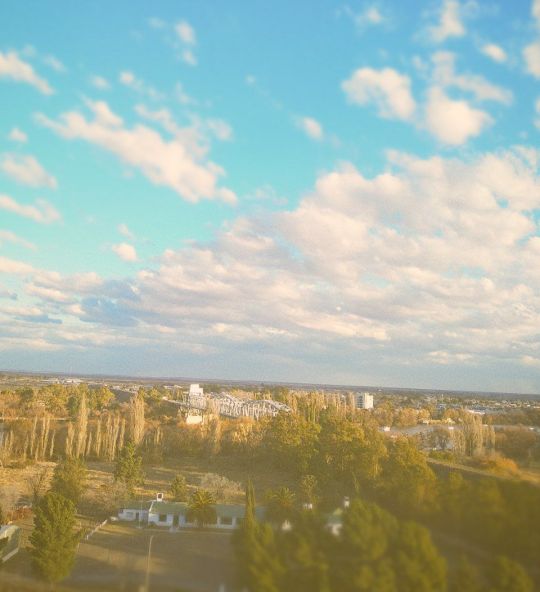#patagon
Text



I wanted to make something about maras/patagonic hares, an endemic animal of Argentina who is near threatened due to the introduction of european hares, who compete with them for resources.

16 notes
·
View notes
Text
Frev nicknames compilation
Maximilien Robespierre – the Incorruptible (first used by Fréron, and then Desmoulins, in 1790).
Augustin Robespierre – Bonbon, by Antoine Buissart (1, 2), Régis Deshorties and Élisabeth Lebas. Élisabeth confirmed this nickname came from Augustin’s middlename Bon.
Charlotte Robespierre – Charlotte Carraut (hid under said name at the time of her arrest, also kept it afterwards according to Élisabeth Lebas). Caroline Delaroche (according to Laignelot in 1825, an anonymous doctor in 1849 and Pierre Joigneaux in 1908).
Louis Antoine Saint-Just – Florelle (by himself), Monsieur le Chevalier de Saint-Just (by Salle and Desmoulins)
Jean-Paul Marat – the Friend of the People (l’Ami du Peuple) (self-given since 1789, when he started his journal with the same name)
Georges-Jacques Danton – Marius (by Fréron and Lucile Desmoulins).
Éléonore Duplay – Cornélie (according to the memoirs of Charlotte Robespierre and Paul Barras. Barras also adds that Danton jokingly called Éléonore “Cornelie Copeau, the Cornelie that is not the mother of Gracchus”)
Élisabeth Duplay – Babet (by Robespierre and Philippe Lebas in her memoirs)
Jacques Maurice Duplay – my little friend (by Robespierre), our little patriot (by Robespierre)
Camille Desmoulins – Camille (given by contemporaries since 1790. Most likely a play on the Roman emperor Camillus who saved Rome from Brennus in the 4th century like Camille saved the revolution on July 12, and not a reference to Camille behaving like a manchild to the people around him like is commonly stated.) Loup (wolf) by Fréron and Lucile (1, 2), Loup-loup by Fréron (1, 2), Monsieur Hon by Lucile.
Lucile Desmoulins – Loulou (by Camille 1, 2), Loup by Camille, Lolotte (by Camille (1, 2), Rouleau by Fréron (1, 2) and Camille, the chaste Diana (by Fréron), Bouli-Boula by Fréron (1, 2).
Horace Desmoulins – little lizard (Camille), little wolf (Ricord), baby bunny (Fréron).
Annette Duplessis (Lucile’s mother) — Melpomène (by Fréron), Daronne (by Camille)
Stanislas Fréron – Lapin (bunny) (by himself (1, 2, 3, 4, 5) and Lucile. According to Marcellin Matton, publisher of the Desmoulins correspondence and friend of Lucile’s mother and sister, Fréron obtained this nickname from playing with the bunnies at Lucile’s parents country house everytime he visited there, and Lucile was the one who came up with it). Martin by Camille and himself (likely a reference to the drawing ”Martin Fréron mobbed by Voltaire” which depicts Fréron’s father Élie Fréron as a donkey called ”Martin F”.)
Manon Roland — Sophie (by herself in a letter to Buzot).
Charles Barbaroux — Nysus by Manon Roland
François Buzot — Euryale by Manon Roland
Pierre Jacques Duplain — Saturne (by Fréron)
Guillaume Brune — Patagon (by Fréron)
Antoine Buissart (Robespierre’s pretend dad from Arras) — Baromètre (due to his interest in science)
Comment who had the best/worse nickname!
#french revolution#robespierre#danton#desmoulins#buzot#barbaroux#marat#fréron#maximilien robespierre#charlotte robespierre#augustin robespierre#camille desmoulins#lucile desmoulins#horace desmoulins#stanislas fréron#georges danton#manon roland#saint-just#louis antoine de saint just#élisabeth lebas#élisabeth duplay#éléonore duplay#fréron really likes nicknames…#frev compilation
145 notes
·
View notes
Note
Could you explain how the song is colonial? My Welsh is not quite good enough to follow fast spoken language except for a few words here and there and I can't find any lyrics
Lol, yeah. Before it played, the composer explained how he wanted to honour Patagonia and so he did LOADS OF RESEARCH, look, here he is, he's reading a book in a library. And then the song played and it turned out the research was knowing the name of the ship and the year it landed, and then just straight celebrating the founding of Patagonia with no colonialist acknowledgement whatsoever. Mawkish and sentimental.
I mean... it is certainly true that the founding of Patagonia was not like the settling of the rest of the Americas, don't get me wrong, there was no genocide or intentional introduction of disease or raping or pillaging or child stealing or Trail of Tears or any of that (which is an extremely low bar but I'm very glad to say we cleared it). The settlers actually bought the land from the people already living there, in fact. That was good.
But like... there were still issues??? Like at the very LEAST if you're going to write a song about THE FOUNDING OF Y WLADFA you should maybe, in your research, have at least found space to reference things like the way we introduced alcohol to the native populations, leading to soaring and crippling levels of alcoholism down the line that we are therefore AT LEAST PARTLY responsible for. Like, it's not like that's not a known and major worldwide issue that haunts white-settled areas!!! That's a very well known and studied issue!!! Notable by it's glaring absense. Also I am very uncomfortable with the phrase "the children of the Patagon", which got quite the workout, lyrically speaking.
It could have been a lot worse, like, but yeah, just... A Bit Uncomfortable
77 notes
·
View notes
Text

carmen de patagones w lara n val
4 notes
·
View notes
Text
And the joke set up in the last chapter is here! The police spy is a dog/hammer that Gavroche would like to have. Yay puns!
The aspect of play is still present here. Gavroche is referencing the Marseillaise and other works, but he’s playing a part, too. For instance, he sings of not seeing his mistress. It’s fun for him, but it’s also a bit of an absurd image, an armed (somewhat) child telling us about the mistress he leaves behind when he’s too young for that. He’s entertaining for sure, but it’s also a bit disturbing in the sense that the boundaries between Gavroche “going to war” and Gavroche playing are blurred, and there’s a real possibility of violence. Even if he willingly participates, the proximity to play makes it impossible to forget that he’s a child, who shouldn’t suffer as he does or be this close to violence.
That being said, this image of a child who doesn’t know what he’s doing is also used to undermine the protest (most notoriously in the musical, but here, too). Mme Patagon stresses the youth of the errand boy who went off to fight to frame him as a simple troublemaker (grouped in with Gavroche). While he probably is quite young, he’s likely older than Gavroche because he’s said to have a small beard, suggesting that he’s more of a teenager. The issue is that Gavroche actually is that young. He knows what he stands for – he tells the rag-picker this is so people like her will have food – but he’s literally a child, and he shouldn’t have to fight. Gavroche is fun, but there’s something very wrong with a society that presents children with the choice of accepting a life of suffering or literally fighting for a future.
16 notes
·
View notes
Text

« Aujourd'hui comme hier l'aventure est la fille du rêve. Sous des formes sans cesse renouvelées, chacun est en mesure de la vivre, s'il a gardé le goût de la beauté et de l'héroïsme. »
Saint-Loup, Le Roi blanc des Patagons
13 notes
·
View notes
Text
I actually have a book which talks about many of those European-created legends (el dorado, the fountain of youth, the seven cities of gold), LOTS of interesting stuff, but one thing that's somewhat amusing is that when conquistadores came to search for gold, people had already heard of them and their obessision with gold and willingness to burn villages from another natives, so what they did is to say "yes, there's lots of gold on that place, go there" to make them go away and leave them alone.
Other times, they just talked about already existing kingdoms, but the Spanish, believing there to be infinite kingdoms full of riches (actually a real reason why so many assholes, sorry for the crude description, came to America), didn't understand that people were talking to them about already existing stuff. People in the Amazonia talked to that guy who sailed the Amazon (don't remember his name) about a land of stone palaces with lots of gold and monasteries of virgins. They were clearly talking about the Inca (the Inca were well known ALL over South America) but the Spanish thought it was yet another kingdom to conquer. In Patagonia, natives talked to the Spanish about a city governed by a white king who used metal. They searched it everywhere. They were talking about the colony of Carmen de Patagones.
There IS one legend that apparently has something very interesting to it: El Gran Patití. Apparently after the Incan conquest, yes, there was an evacuation of religious artifacts to a refuge for the nobility, and that location remains unknown, and it's not known if Patití was an actual place or a metaphor for something. In fact, Tupác Amaru of the 17th century rebellion called himself the lord of Patití. What it was, exactly? That's still up to debate, and honestly more interesting than EL DORADO!!!!! because it seems to be an actual Inca place or legend instead of some circlejerk from conquistadores.
I will re-read my book (se llama "América Mágica" but unfortunately it only treats the European perspective, still it's a DAMN good book about it) and tell you more about it.
22 notes
·
View notes
Text



Carmen de Patagones, Buenos Aires, Argentina (2023)
17 notes
·
View notes
Text

PATAGONES CHILE PATAGONIA
3 notes
·
View notes
Text
The giants were by nature of enormous build, like those gross wild creatures which travelers report finding at the foot of America, in the country of the so-called Patagones [Big Feet].
Giambattista Vico
8 notes
·
View notes
Text



From "The Patagonic" a personal RPG project
#illustration#argentina#patagonia#comics#comic art#historieta#dungeons and dragons#dungeon synth#fantasy rpg#rpg art#d&d art#d&d character#artist on tumblr#tumblr art#concept art
3 notes
·
View notes
Text
4 notes
·
View notes
Text
⚠️𝑭𝒂𝒌𝒆 𝑵𝒆𝒘𝒔⚠️
ɴᴏ ᴄʀᴇᴀ ᴛᴏᴅᴏ ᴅᴇ ɪɴᴛᴇʀɴᴇᴛ
⚠️¡¡ÚLTIMAS NOTICIAS!!⚠️
En el Liceo Altos del Mackay, una institución educativa ubicada en una zona marcada por la desigualdad económica, se reveló un perturbador caso de discriminación que reflejaba las profundas divisiones socioeconómicas presentes en la sociedad. Benjamín Ríos, un estudiante de 17 años proveniente de un entorno socioeconómico desfavorecido, fue víctima de un constante acoso y exclusión por parte de sus compañeros más privilegiados.
El incidente comenzó cuando Benjamin se incorporó al liceo, proveniente de una comunidad cercana con altos índices de pobreza. Sus compañeros, influenciados por estereotipos y prejuicios arraigados, no tardaron en señalar su origen socioeconómico. Benjamin era constantemente ridiculizado por su ropa modesta, sus pertenencias de segunda mano y su incapacidad para participar en las actividades extracurriculares que requerían de un mayor gasto económico.
La discriminación que sufrió Benjamín no se limitó a las burlas, sino que también afectó su experiencia académica. Sus compañeros de clase, al percibirlo como "inferior" debido a su situación económica, lo excluían en proyectos grupales y se negaban a colaborar con él en trabajos escolares, he incluso se llegaron a los golpes en la entrada del establecimiento, dejando a Benjamín con lesiones de gravedad.
El Liceo Altos del Mackay no se a pronunciado acerca de este incidente, como noticiero 100% confiable nos parece HORRIBLE esta situación, estamos contigo Benjamín, ¡¡DIFUNDIR!!.
Martín González-Patagon Funas News.

2 notes
·
View notes
Photo

PAÍS INVIABLE. Se robaron 3.600 metros de Rieles con 189 durmientes y dejaron sin servicio al Tren Patagónico. Fueron sustraídos del tramo entre Bahía Blanca y Carmen de Patagones en Bs As. utilizaron sopletes y cargado en camión. El ramal volvería a operar recién en abril.
2 notes
·
View notes




